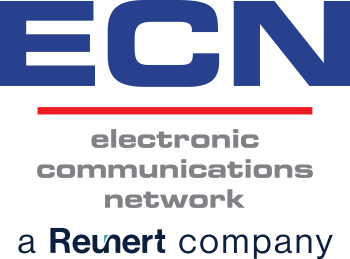There’s so much more to schools than simply teaching and learning. There’s staff engagement and training; inter-school interactions to co-ordinate sports’ fixtures and cluster meetings; dealings with government departments and local corporates on funding and regulations; parent-teacher engagements; supplier interactions to secure classroom supplies and organise maintenance and repairs; media and public relations…and so much more. All of this interaction and engagement requires a quality phone system that can handle the capacity and unique communication requirements of the school environment.
What are the main phone types?
Maintaining open lines of communication within a school is vital, and this can be achieved by installing a quality telephone system that meets the diverse needs. Here are the two dominant phone systems for the business setting.
1. Key Service Unit (KSU)
These phone systems use a central control device – the key system unit – which routes calls. With this system, you have access to multiple phone lines with more advanced features than traditional phones. This is ideal for small- to medium-sized businesses of 40 employees or less.
2. Private branch exchange (PBX)
This is a step up from the KSU, is largely an automated system and is better suited to businesses with more than 40 employees. In the South African setting, this can be beneficial as it has an uninterruptible power supply allowing it to function for some time without electricity. There’s also the hosted PBX version which is hosted by a telephone provider so that you’re not dealing with the installation and maintenance costs.
3. Voice over Internet Protocol (VoIP)
The most advanced telephone system currently is the VoIP system that allows you to communicate using internet. Also suited to larger organisations, VoIP converts the voice to data before being transferred over a data network to the recipient. While the system is more expensive than its competitors, it comes with many advanced features.
What is the best phone system for a school?
When it comes to choosing the best phone system for a school setting, then VoIP is the best option where budgets allow. Here’s a look at the various phone features that work into a school’s everyday requirements.
What are the VoIP features for schools?
- Call routing options: The VoIP system is able to effectively route calls to where they’re needed so that parents, school governing body representatives, government officials and other stakeholders are left waiting unnecessarily. Some of the benefits of call routing include:
- Auto-attendants for redirecting to voice mailboxes.
- Call forwarding to redirect to another number.
- Call queue which allows Pas to attend to a caller while another one holds.
- Voicemail-to-email: When it’s out of term time or for staff who are away at district meetings or other outings, this feature lets staff check in on messages without being interrupted. Some of the benefits of voicemail-to-email include:
- Quick and accurate voicemail-to-email.
- Keeping parents updated of all happenings in real-time.
- Online faxing: This sends scanned or digital documents to your computer or mobile devices. The benefits of this are:
- Electronic signatures for transmitting forms.
- Group deliveries directly to parent, teacher and student groups.
- Large file transfers of more than 100 pages.
- Call recording: All calls can be recorded for reference purposes, which can be extremely valuable when schools are dealing with parents.
- Video conferencing: With remote learning becoming the norm, video conferencing is a value-add feature. With video conferencing, you can engage with teachers, students, parents and administrators across various locations without requiring face-to-face engagements.
- Conference bridging: This feature allows large groups of people – hundreds in fact – to participate in one phone call. This is a great for large school engagements with faculty members, school administrators and service providers. The benefits of this are:
- No need for setup as it just requires a phone line and audio equipment.
- It’s convenient for parents and busy government officials.
- It’s a flexible format as people can dial in from mobile phones, landlines, tablets or computers.
You may also like: The best phone system for a doctors’ office
There are so many fantastic features available for schools using VoIP telecommunication systems. ECN is a leading supplier of cost-effective voice, data and hosted services to meet ever-changing technological needs. If you want to find out more about the latest in phone systems and which features will best work for you, contact ECN today.

